 ENTERING HISTORY POEMS MARY STEWART HAMMOND
ENTERING HISTORY POEMS MARY STEWART HAMMOND  Adjusting type size may change line breaks. Landscape mode may help to preserve line breaks. For Arthur forever CONTENTS LINES composed at Beaufort, South Carolina, a few
Adjusting type size may change line breaks. Landscape mode may help to preserve line breaks. For Arthur forever CONTENTS LINES composed at Beaufort, South Carolina, a few
miles above Parris Island Seeing Mozarts Piano Quartet in E-flat Major
in the Old Whaling Church, Edgartown Reading the Declaration of Independence on
the 4th of July Adjusting type size may change line breaks. Landscape mode may help to preserve line breaks. ENTERING HISTORY The door to the poem opens in, and a couple enter, set down their luggage, and stand, backs to the door, silhouetted against the light, taking in the room. They step through French doors in the far wall and out onto a balcony cantilevered over ramparts. The vast impastoed Umbrian kingdom swoops away and down before them.
They have climbed this world in first and second gear, half the afternoon, past twelfth-century belfries and 500-year-old cypresses, up the very blacktop switchbacking through the view. Dirt roads lead off it wandering Etruscan boundaries to invisible purpose. An ancient farm truck, no bigger than a pencil eraser, and the only sign of life and the twenty-first century, crawls soundlessly along one of them. On distant hills, the honey and terra cotta of Assisi, Spello, Spoleto, hover in the haze like cities of God fallen to earth, habitations for humans the size of seeds on white-haired dandelions. She leans her head on his shoulder. He kisses her.
Theyve already shrunk half an inch since they began their lives together. They turn, reenter the room, cross back and forth in profile, unpacking. Hes acquired a stomach, and his hair has gone white. She pulls off her clothes. There is a scar on her breast, one in her armpit; three more run like roads across and down her belly. A bloom of spider veins tattoos her calf.
Theyre getting old, but not so old we shouldnt close the door on their nap. Tonight theyll have dinner downstairs. Tomorrow theyll drive off into the view. For now, theyll awaken in this minor city of God entwined in each others arms. Well hear them talking, sotto voce on the other side of the poem, dusk erasing their bodies. When we travel we carry our baggage right out there where we can see it, lock it, check it, hand-launder its contents.
It gives us the feel of baggage as controllable, self-limited, a condition with clear parameters. The rule of thumb is boil things down to the essential, that which you can easily push around. When you think you have it to the minimum, open your suitcase and remove two things. Thats right, the neurotic baggage has to go, neurotic baggage being all that exceeds two pairs of slacks, three shirts and a change of
underwear, which does not mean there wont be some neurotic baggage left, curled up in a ball, in the corners of your suitcase sucking its thumb, just that that which cant fit into a wheelie and probably needs treatment or drugs, gets a vacation from us, and that that prayer of ours, the one that goes Lord, give me no more than I can carry , goes answered for a couple of weeks. PORTRAIT OF MY HUSBAND
READING HENRY JAMES Rather, it is in the shorter history of America, not England, not Italy, that we find ourselves in the perfect middle of a rainy, summer afternoon inside a 1930s shingled boathouse long since beached on a low hill out of waters reach, and plumbed and electrified for habitation. No effort has been made to hide its origins.
Old masts and spars wait in the overhead rafters. Blocks and tackle, coiled in figure eight knots, loop from hooks on the wooden walls open studs. The faded blue transom of Will-o-the-Wisp, my mother-in-laws 1920s childhood Sneakbox, hangs on its traveler over the west window as if the bow and midship had sailed off into the dark wood. The person concerned sprawls in a Bean shirt and Top-Siders in an easy chair by a slow fire crackling like balled-up paper uncrumpling, the length of him spilling on and on out over the ottoman. He is meeting Isabel Archer, Madame Merle and Gilbert Osmond while Duke Ellingtons smooth rationalizations slide out of speakers in a tease of intrigues and blue notes played behind the beat, major chords changing to minor, piano and sax entwining. The face of our reader, caught in the fiction, softens.
The corners of his mouth turn up just so. His hand rests on the top of his head. His hair is silver. Ellington segues to Scott Joplin to Bernstein. Firelight collects on his glasses. He is in the pleasure of fine distinctions and complicating clauses that match his own parsing of matters.
I want to stroke his cheek, but hesitate to break the spell. He is both far away, and close enough to heave to with, Listen to this! and Ohhh. But this! and reads paragraphs, whole sections aloud before hes off again. Or, he fetches up somewhere in the middle distance wondering at all these oversexed characters! (He reads little new fiction.) As if in answer, Rhapsody in Blue rises up out of the clarinet crying. But hes back in Rome beside the crinkling fire, jazz working the room, shingles muffling the rain, the sounds of a summer afternoon composing themselves like time and happenstance entering and rippling in a human. Sunlight spills through holes in the clouds spotlighting the marsh grass here and not there, whitening a sail out on the water, leaving others in shadow, shining the transom of the moored catboat, its bow disappearing.
The bobwhite calls its name without knowing it. Sparrows and swallows, fussing and twittering line up like deacons on the deck railing, scooting off as one at some mysterious bidding. The ospreys mousy squeak disguises its six-foot wingspan, its preying nature. Wind, rustling in the leaves of the choke cherry, makes low whistles through the cedars as it picks up, drops. Songbirds crowd the air, zipping across the foreground from candle pine to spruce to cedar. In the distance the town clock strikes eight.
Somewhere a halyard chimes on a mast. White, webbed chairs on the gray deck, sit facing out, empty. At the deck corners, white planters bristle with rosy orange geraniums. The sun blazes in one window across the pond as the others, two and three at a time, fill with artificial light. A gull catches a current, hangs suspended in it, screeches like rusty hinges on a screen door, and takes one last nosedive. The inlet sneaks through beach grass and sand into the wide water, and the sky beyond.
Dusk softens the colors, the geraniums orange tang hanging on until dark. Hed build a fire, and bring me strong, dark, bitter coffee every morning with lots of milk, warmed, little sugar, just the way I like it, and wed sit opposite each other clutching our mugs in a little loaned stone house in a little stone village perch in Provence, in December, in the year 1991. We probably said a few words. Words of endearment. But we were each in a place the other couldnt reach, and the winter landscape outside matched, which is why we didnt want to look at it, had no room to take it in because it was already inside us. What possessed us? How could we forget Provence was on the same latitude as Nova Scotia? He had brought a 1007-page book with him, Robert Massies Dreadnought: Britain, Germany, and the Coming of the Great War , to be exact, although thats less important than the number of pages.
It would be about here, after a few words, a few swallows of coffee, when he would begin to read. I had brought a blank notebook, but was frightened of what Id find there. I would begin to cry, silently. Or, maybe it was the other way around; Id begin to cry, and then hed pick up his book. It doesnt matter. He was not shutting me out; he was abandoning himself.
Next page
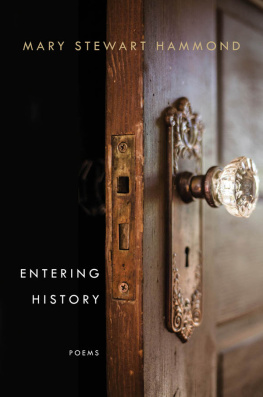
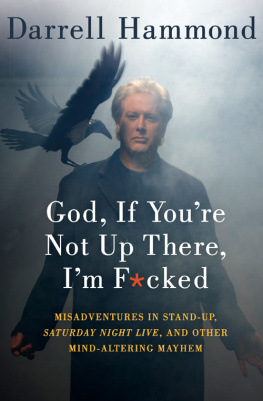
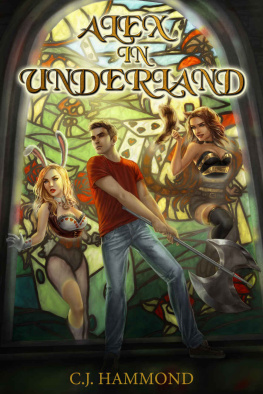
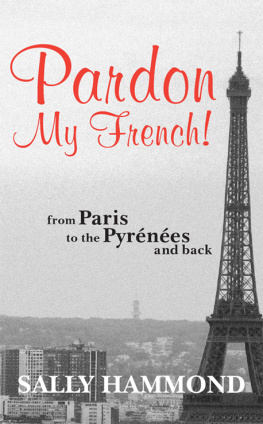

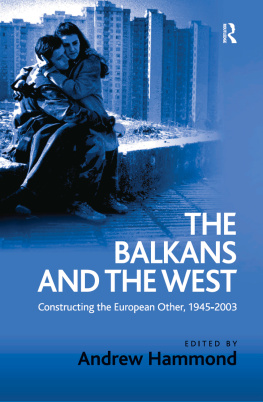




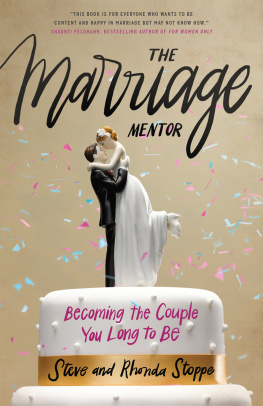

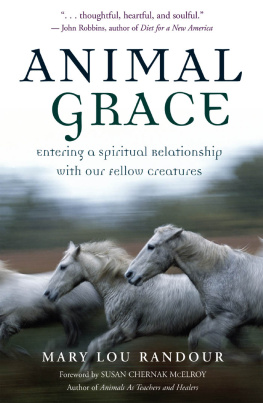


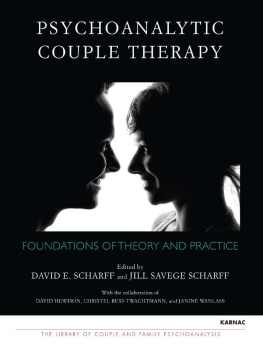



 ENTERING HISTORY POEMS MARY STEWART HAMMOND
ENTERING HISTORY POEMS MARY STEWART HAMMOND  Adjusting type size may change line breaks. Landscape mode may help to preserve line breaks. For Arthur forever CONTENTS LINES composed at Beaufort, South Carolina, a few
Adjusting type size may change line breaks. Landscape mode may help to preserve line breaks. For Arthur forever CONTENTS LINES composed at Beaufort, South Carolina, a few